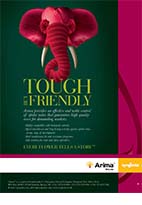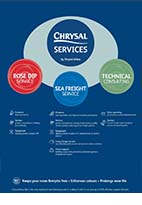In spite of signing the delayed Economic Partnership Agreement (EPA) alongside its East African Community counterparts, Kenya will still have to pay Sh600 million more in tariffs for possibly the next six months for its horticultural exports to the European Union.
This as it tries to work with the EU to realign the tax regime to include Kenya for duty-free, quota free status for all its exports to the EU market. Its exports are currently subjected to GSP regime which required them to be imposed ranging between 4.5 to 8.5%.
The Kenya Flower Council (KFC) said only carnations would benefit from a 0% tariff line in the interim time. “The immediate impact of the GSP tariff on Kenyan exports to the EU is an increase in cost to the EU importers by the margin of the applicable tariff. Exports from Kenya to the EU will suffer import duties of approximately about Sh600 million a month under the regime,” said KFC CEO Jane Nginge. She however said it was a relief since failure to have the GSP agreement in place; the imports would have attracted full Most Favoured Nation (MFN) duties at customs-clearance into the EU.
The Council urged the concerned EU parties to fast- track the process and shorten the period during which GSP duties will be applied. In the, meantime, Ms Nginge said both parties will commence the process of ratification and final signatures of the Agreement in their jurisdictions.
The East African Community and European Union Economic Partnership Agreement (EAC - EU EPA) finished negotiations and reached an agreement on. This comes after the two parties finally reached an agreement on October 13th and 14th 2014 in Brussels Belgium. It had been estimated that without the EU-EAC deal close to 500,000 workers in the horticulture sector would have been rendered jobless.
The previous pact lapsed on October 1. There was a delay in entering a new one as some of the EAC members were said to be taking too long to enter into an agreement.


